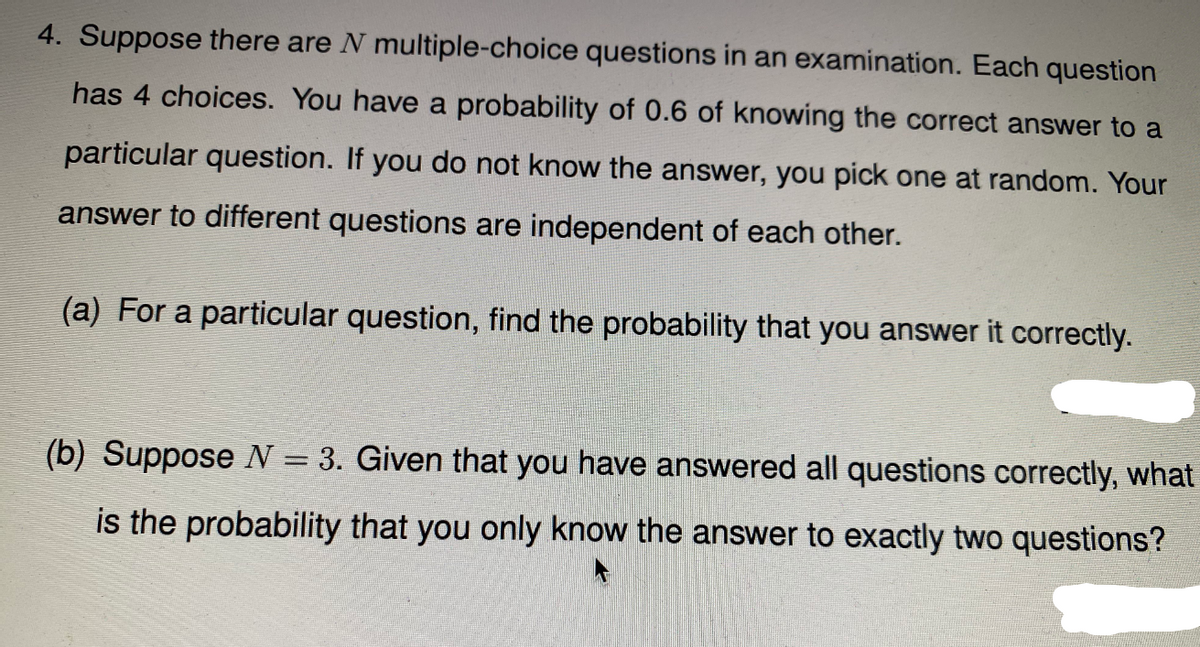4. Suppose there are N multiple-choice questions in an examination. Each question has 4 choices. You have a probability of 0.6 of knowing the correct answer to a particular question. If you do not know the answer, you pick one at random. Your answer to different questions are independent of each other. (a) For a particular question, find the probability that you answer it correctly. (b) Suppose N = 3. Given that you have answered all questions correctly, what %D is the probability that you only know the answer to exactly two questions?
4. Suppose there are N multiple-choice questions in an examination. Each question has 4 choices. You have a probability of 0.6 of knowing the correct answer to a particular question. If you do not know the answer, you pick one at random. Your answer to different questions are independent of each other. (a) For a particular question, find the probability that you answer it correctly. (b) Suppose N = 3. Given that you have answered all questions correctly, what %D is the probability that you only know the answer to exactly two questions?
Chapter8: Sequences, Series,and Probability
Section8.7: Probability
Problem 6ECP: In Pennsylvania’s Cash 5 game, a player chooses five different numbers from 1 to 43. If these five...
Related questions
Question

Transcribed Image Text:4. Suppose there are N multiple-choice questions in an examination. Each question
has 4 choices. You have a probability of 0.6 of knowing the correct answer to a
particular question. If you do not know the answer, you pick one at random. Your
answer to different questions are independent of each other.
(a) For a particular question, find the probability that you answer it correctly.
(b) Suppose N = 3. Given that you have answered all questions correctly, what
%D
is the probability that you only know the answer to exactly two questions?
Expert Solution
This question has been solved!
Explore an expertly crafted, step-by-step solution for a thorough understanding of key concepts.
Step by step
Solved in 3 steps with 3 images

Recommended textbooks for you


College Algebra
Algebra
ISBN:
9781305115545
Author:
James Stewart, Lothar Redlin, Saleem Watson
Publisher:
Cengage Learning


College Algebra
Algebra
ISBN:
9781305115545
Author:
James Stewart, Lothar Redlin, Saleem Watson
Publisher:
Cengage Learning